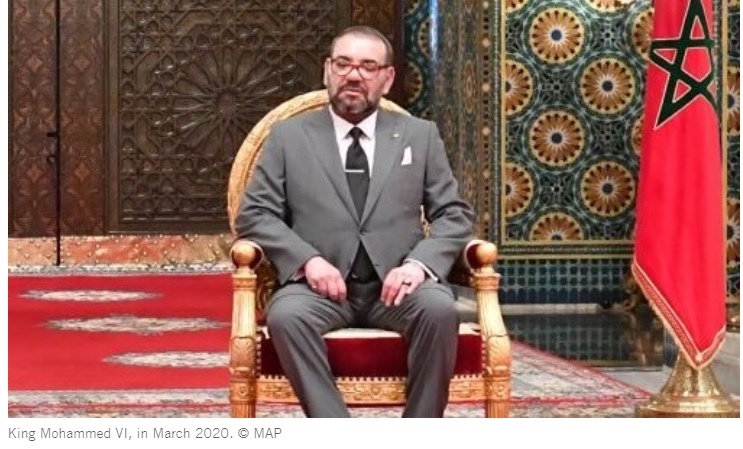The Africa Report
By Jeune Afrique
Rabat has discreetly led a mediation between the Malian imam Mahmoud Dicko and President Ibrahim Boubacar Keïta.
The day after the violent protests of 10 July that inflamed a section of Bamako, killing 14 people and injuring more than 100, Morocco’s foreign minister Nasser Bourita, acting on the specific instructions of King Mohammed VI, led a discreet mediation between the leader of the 5 June Movement, Imam Mahmoud Dicko, and President Ibrahim Boubacar Keïta (IBK).
READ MORE Mali: Imam Mahmoud Dicko and international community call for calm
In the early hours of 11 July, Morocco’s ambassador to Mali, Hassan Naciri, a figure with deep knowledge of the intricacies of a country he has been posted to for eight years, paid a visit to Imam Dicko at his home in the Badalabougou neighbourhood, which had been the epicentre of clashes one day earlier.
According to a reliable source in Rabat, the ambassador came bearing a message from Moroccan authorities “calling for a calm in tensions and offering Mali the kingdom’s diplomatic assistance to bring the two sides closer”. Members of Dicko’s inner circle confirmed the substance of the conversation, adding that, “Seeing as Mohammed VI is a major African figure, when he calls for calm, he’s listened to, and it helps that the imam isn’t fond of violence either.”
READ MORE Mali: ‘Promoting security must not be done at expense of democracy & human rights’, Obasanjo
During the meeting with Ambassador Naciri, Dicko outlined his terms for resuming talks, i.e., releasing arrested opposition leaders, dissolving the supreme court, forming a consensus government and holding legislative by-elections.
Close religious ties
Once informed of the imam’s demands, Naciri headed in the direction of Koulouba Palace, where IBK received him in the afternoon. The two men continued their discussion late into the evening and the ambassador was the first to know about the president’s address, which he gave in the middle of the night and favourably responded to most of the imam’s demands.
On 12 July, Naciri returned to Badalabougou, where he was able to get Dicko to make a statement to ease tensions and bring an end to the protests. This tenuous but positive outcome is largely a product of the prestige King Mohammed VI enjoys in Mali, as well as the close religious ties the two countries, where Maliki Islam prevails, have developed with one another.
Following a recent appointment, Naciri will soon leave his posting in Bamako for Dakar. He will be replaced in Mali by Morocco’s current ambassador to Guinea, Driss Isbayene.



